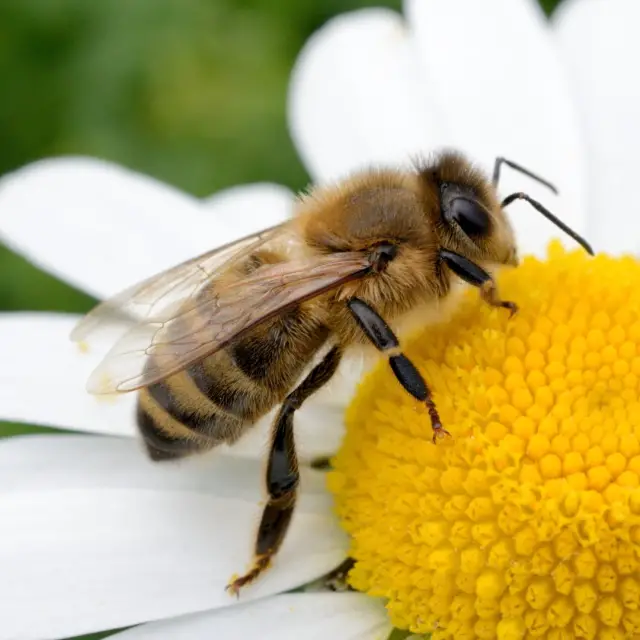Every May 20, the world celebrates World Bee Day, a date designated by the United Nations in 2017 to recognize the importance of these small but vital insects in preserving biodiversity and food production. Beyond their sweet gift of honey, bees are responsible for pollinating more than 70% of the crops that feed humanity. However, their survival is under threat due to factors such as climate change, the use of pesticides and the loss of natural habitats.
The crucial role of bees in ecosystems
Bees play an essential role in nature as pollinators. This process involves the transfer of pollen from one flower to another, allowing for the reproduction of plants. Pollination not only ensures the production of fruits and seeds, but also contributes to the genetic diversity of plant species.
The Food and Agriculture Organization of the United Nations (FAO) estimates that approximately 35% of global food production depends on pollinators such as bees, butterflies, bats and birds. Crops that require pollination include fruits such as apples, pears, cherries, as well as nuts, coffee and cocoa. Without bees, our diet would be less varied and nutritious.
Threats to the survival of bees
In recent decades, bee populations have declined dramatically in many parts of the world. The main threats include:
Climate change
Changing weather patterns affect the life cycles of plants and pollinators. The lack of synchronization between flowering and bee activity can reduce food availability for these insects.
Use of pesticides
The indiscriminate use of pesticides, especially neonicotinoids, has proven to be lethal to bees. These chemicals not only affect their nervous system, but also reduce their ability to navigate and return to their hives.
Habitat loss
Urbanization and the conversion of wild lands into agricultural areas have significantly reduced the natural habitats of bees. This limits the diversity of plants available for their food.
Diseases and parasites
Bees also face biological threats such as the Varroa destructor mite, which affects honey bees. This parasite feeds on the haemolymph of bees, weakening them and making them more vulnerable to disease.
Impact of bee decline on agriculture and biodiversity
The loss of bees not only poses a threat to agriculture, but also to natural ecosystems. The decline in pollinators could lead to lower food production and a reduction in plant diversity, affecting both the animals that depend on them and humans.
On the economic front, pollination contributes more than $200 billion annually to the global economy. Without bees, agricultural production costs would increase dramatically, affecting the accessibility and price of food.
Global initiatives to protect bees
In response to this crisis, numerous governments, organizations and communities have implemented strategies to protect bees and other pollinators. Some of these initiatives include:
Sustainable agriculture
Promoting sustainable agricultural practices that reduce pesticide use and encourage crop rotation can help create a more bee-friendly environment. Certification programs for products that support biodiversity are also being implemented.
Creation of ecological corridors
Ecological corridors connect fragmented habitats, allowing bees and other pollinating animals to move more easily and find food sources.
Scientific research
The study of bee behaviour, diseases and genetics has been crucial to developing innovative solutions to protect bee populations. For example, smart hives have been created that monitor the status of bees in real time.
Education and awareness
Educational campaigns about the importance of bees and the actions people can take to protect them are essential. Planting gardens with native flowers, avoiding pesticides in the home, and supporting local bee products are some steps we can all take.
How can we contribute as individuals?
Protecting bees is a shared responsibility. Every person can take concrete actions to support their survival, such as:
Plant native flowers: These plants provide food and shelter for bees.
Avoid the use of pesticides: Opt for natural alternatives for pest control.
Support local beekeepers: Buy honey and other bee products from producers who practice sustainable beekeeping.
Create bee-friendly spaces: Install insect hotels or small hives in gardens and terraces.
Participate in community projects: Get involved in local pollinator conservation initiatives.
World Bee Day is not just a day to celebrate, but also a reminder of the urgent need to protect these indispensable insects. Every action counts, from the implementation of public policies to the decisions we make in our homes.
As we reflect on the role of bees in our lives, we also recognise our interdependence with nature. Protecting bees means preserving our future, ensuring a sustainable planet for generations to come. On this World Bee Day, let us commit to being allies to these little giants of nature.
